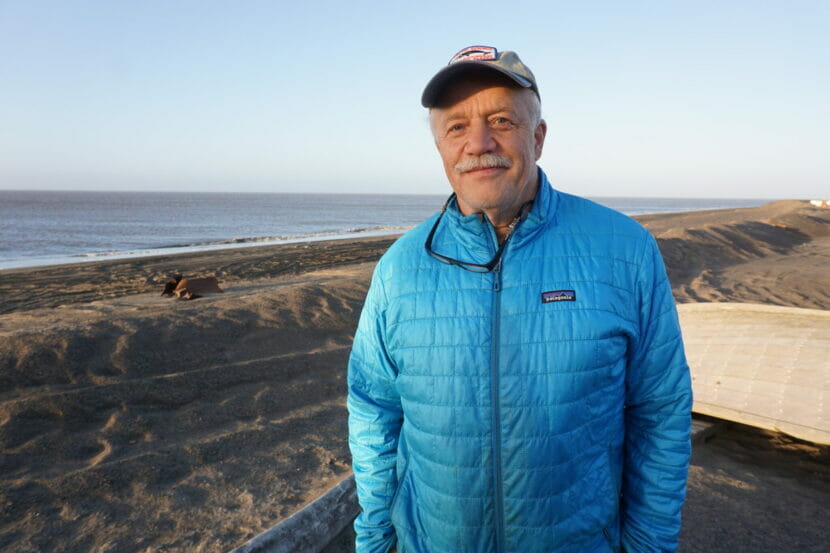
A veteran Arctic scientist who was one of the world’s most distinguished whale experts was missing after a rafting accident in Interior Alaska last week.
Craig George, a retired senior biologist with the North Slope Borough Department of Wildlife Management, went missing on Wednesday while rafting the Chulitna River with companions south of Cantwell near Denali National Park, the Alaska State Troopers reported. His body had not been found as of Monday, a trooper spokesperson said.
George, 70, spent decades studying bowhead whales and documenting their long-term increases. He also studied the myriad ways that reduced sea ice and other climate-change impacts have affected Utqiagvik and the rest of coastal Arctic Alaska.
He published studies on such subjects as increased predation on bowheads by killer whales that can now swim farther north, the way changes in shore ice have affected Inupiat hunting practices, and ways to preserve traditional food cellars that are dug in the warming permafrost.
He moved to the town then known as Barrow in the 1970s. He was an animal caretaker at the Naval Arctic Research Laboratory before embarking on his long career with the North Slope Borough. He became known for his collaborative work with Inupiat experts.
George had talents and accomplishments beyond his scientific work. He was a pillar of the Utqiagvik community. He was a musician, and often performed a song he wrote called “Keep on Whaling.” The son of Newbery Award-winning author Jean Craighead George, he and his sister collaborated to complete one of his late mother’s unfinished books after she died. The book is titled “Ice Whale”; like many of Jean Craighead George’s books, it was partly inspired by her son’s scientific work in Arctic Alaska.
Tributes to George poured in over social media once news of his accident was released.
D.J. Fauske, director of external affairs for the North Slope Borough, wrote on his personal Facebook page about memories from first grade, when he was a student at Ipalook Elementary School and first met George.
“He was kind, gentle, humble, funny, and could teach you something without you even knowing you were in the middle of an academic lesson. No such thing as a dumb question to him. . . . It’s been a pleasure working for my hometown borough, and people like Craig were a big part of the reason. He helped so many people and helped preserve and protect an Inupiat culture that was judged and stereotyped for years by outsiders. He helped combine thousands of years of traditional local Inupiat knowledge with world class technology and data.”
Suzanne Little, who oversees Alaska land conservation for the Pew Charitable Trusts, played in a band with George, and performances included a mid-1980s event in what was then the new Barrow High School.
“Dr. Craig George, aside from being an amazing friend, musician, songwriter, father, spouse and stellar community member, was one of the first western science biologists, along with Dr. Tom Albert, who listened to the Indigenous Knowledge of the Inupiat People and instated a Bowhead Whale census program to prove the Indigenous people were correct about the Bowhead whale population NOT being endangered. . .Craig’s work provides us all a roadmap,” she posted on Facebook.
Cheryl Rosa, deputy director of the U.S. Arctic Research Commission, commented: “Dr. Craig George was a remarkable Arctic research scientist with a unique scientific curiosity that drove his work, his results often endearingly delivered with softspoken humor and humility. He was a great proponent of co-production in research—far before it became a buzzword—and was fair and empathetic, in both science and life. The respect he showed the communities he worked with earned him a place as a trusted partner and showed the rest of the scientific community how research could be improved with local input. Craig was a mentor to many and a friend to even more. Many scientists entered and remained in the field of Arctic research because of him. He was a wonderful person and will be deeply missed.”
The search for George has been hampered by high water in the river, said Austin McDaniel, a spokesman for the Alaska State Troopers. A dive team is waiting for water levels to fall so that specialized equipment can be deployed in the river, McDaniel said.
This story originally appeared in the Alaska Beacon and is republished here with permission.